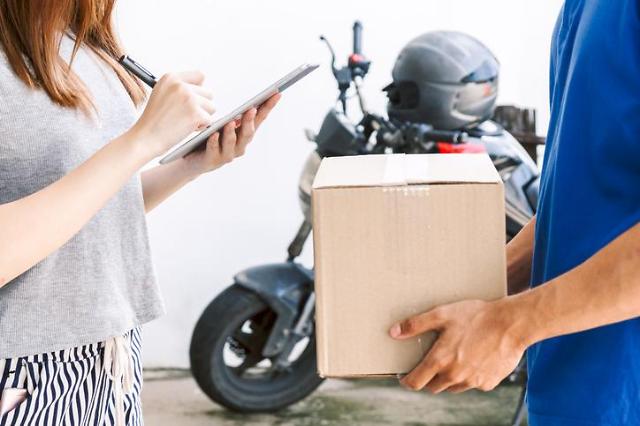
[Gettyimages Bank]
Data released by Seoul showed that there were 30,228 parcel delivery workers in Seoul as of 2019. According to a 2020 survey of 1,862 parcel delivery workers, conducted by the labor ministry, about 90 percent of delivery workers work more than 10 hours a day and each worker delivers more than 200 packages a day.
Seoul said in a statement that the city will demonstrate five community-based logistics centers to improve the efficiency of parcel delivery. When parcels are delivered to the logistics facilities, locally-employed deliverymen will carry out the last-mile delivery. The logistics centers will become local cultural centers by housing facilities such as a library, workshop, cafe, and other hobby-related classrooms. The centers will also have electric vehicle chargers that deliverymen can use to charge their electric trucks.
According to Statistics Korea, the national statistical office, the online shopping transaction amount reached 193 trillion won ($161 billion) in 2021, up 21 percent from a year ago. "The annual number of parcels in Seoul significantly increased from 2.7 billion won in 2019 to 3.4 billion won in 2020 because of the COVID-19 pandemic," Seoul's logistics policy bureau official Park Sun-young told Aju Business Daily on February 14. Park said that the official operation of the community-based logistics centers will start in August after a test run.
Copyright ⓒ Aju Press All rights reserved.




View more comments